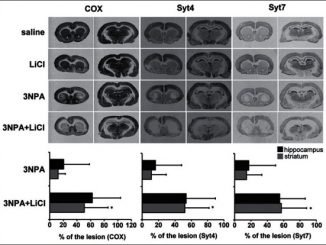
Author Summary
Lithium chloride could aggravate brain injury caused by 3-nitropropionic acid (3-NPA)
Lithium chloride has been used for more than 100 years to alleviate manic and depressive disorders. It is successfully used to alleviate the symptoms of bipolar disorders of schizophrenia and depression. Clinical studies and research […]